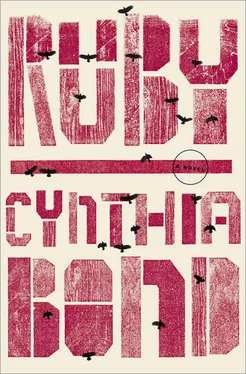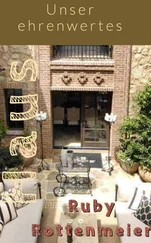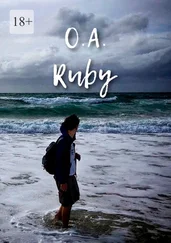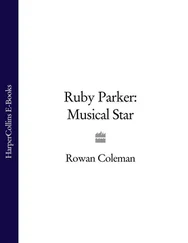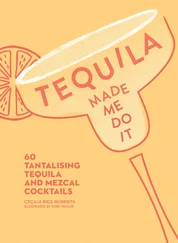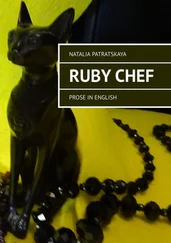Her mother had let out a small scream of agony when Otha told her she had married the Reverend. It was the loudest noise anyone had ever made in the house. Otha held her mother, her dark arms wrapped around the older woman’s neck, wet cheek to wet cheek, both crying in the dim of the evening lamps. She whispered into her mother’s ear that he gave her a reason to breathe in and out and that she would follow him and love him for all of her days.
Marilyn held her daughter. She would be hurt, of that Marilyn was certain. Helpless to protect her, Marilyn felt a wildness in her own chest, like a bird trapped behind a glass door. But when she looked in the girl’s eyes she could see that she was already gone so she gave her words to help her in the dark days:
“Your daddy and me named you Otha. It means ‘wealth.’ You were your daddy’s treasure from the time you were born until he died. He used to say there were rubies buried deep inside of you. Remember, baby, don’t never let a man mine you for your riches. Don’t let him take a pickax to that treasure in your soul. Remember, they can’t get it until you give it to them. They might lie and try to trick you out of it, baby, and they’ll try. They might lay a hand on you, or worse, they might break your spirit, but the only way they can get it is to convince you it’s not yours to start with. To convince you there’s nothing there but a lump of coal.
“Honey, one day I’m going to die, and that’s not all, one day you’ll die too. And between the here and the there, God sets us upon the business of collecting life’s true fortune. I’ve gotten plenty: the way your daddy smiled when I met him; the apple pie your grandmother used to make, with whole cinnamon grated in with the sugar; the maple leaves in the fall and how that always meant your daddy’s fig maple syrup would be on our pancakes. And you. You my big beautiful jewel baby. You my prize. And one day you’ll have a child and that child will be your prize.
“Teach them to see it, teach them by doing. But if you can’t, if you done give your treasure away, if you find it hard to make your way in the dark of your own soul, if you forget who you really are, know that it comes back to you when the lie they give you die. That lie don’t die easy, and sometimes it take you with it. But for all that, your bounty yet waits for you to claim it.
“Remember and it will yet shine. Shine brighter when you let love touch you. Shine brighter when you love yourself. Shine on into heaven when you leave this old world.
“Remember what I say Otha. Remember to lay claim to your inheritance. Will you make that promise to me?”
Otha shook her head, eyes spilling with tears. “I promise Mama,” she whispered.
Then she gave her mother a kiss on her dark cheek and went upstairs to pack her bags. She left that hour. Marilyn watched them drive away — the Reverend had waited in the buckboard, never entering her home again, not even to pick up her daughter’s bags.
He was good to Otha for a month, and the days of that month were full of talk and big dreams and pictures the size of the sky painted with flourish. He told her of the South as they rode on his buckboard to Liberty, gentle breezes full of gardenia, and blue-bonnets littering the sides of hills. He talked about seeing and knowing, how he was a grown man and knew what he wanted, how he wanted to shepherd the lost. He talked about the church he would have one day, and the rainbow glass with angel wings. He said how she was a little bitty thing who he would keep under his wing at least until forever.
The thirty good nights filled Otha with a kind of joy that broke her heart. It was too great a feeling to fit into her temperate body, her delicate spirit, so she had to keep breaking apart to accommodate it, only to glue herself back together each morning. By the time they reached Oklahoma she could no longer recognize herself. But Otha liked this new woman in the looking glass, with tired smiling eyes and world wise lips.
It would be years before he hit her. But in Texarkana, five days from Liberty, he began a covert assault on her judgment. It was little things, like how not to hang linen on the traveling line, what not to wear during Holiness service while he was guest preaching. When they arrived at the Jesus Hearth Church in Dearing and he gave his “Out of the frying pan, into the hands of Jesus” sermon with a 102-degree fever and chills to a decidedly cool congregation, he shamed Otha in front of the congregation by speaking about Northern women with shorn hair who thought the rib was bigger than Adam. By the time they reached Liberty his face was sullen stone that only cracked at night between white sheets.
When her mama got sick a year later, Otha didn’t have the strength to tell her she had been right. She asked for money to visit Marilyn but the Reverend said train tickets didn’t grow on trees. He gave her money for a trip to the funeral four weeks later instead.
The first two children died before they had fully taken root in her womb. Otha had wanted proper graves but the Reverend said that that was blasphemy as they hadn’t come full term and hadn’t been baptized. The next child was Celia and she was the Reverend’s child from the beginning, willed to life by the boom of his voice, smiling at his coos and tickles, crying even as she suckled at Otha’s breast. Then five more lost children until her boy Ephram came in ’29.
By this time the Reverend was hitting her good and proper when, he said, she deserved it. He hated to see her reading and would slap her whenever he caught her at it without first asking if she had finished her chores. He never let her cut her hair, but bristled if she primped in front of the mirror.
When Ephram was five, Grueber’s mill went up in flames. It took three whole months before it was up and running, during which time the collection plates suffered greatly. So much so that Otha had to take a job in Newton making lace at Miss Barbara’s Bridal Necessities. The Reverend had taken her there himself early one Monday morning. He’d said that Paula Renfolk, Miss Barbara’s maid, had told him about the job, but when they got there, Paula seemed surprised to see them, and her husband and Miss Barbara were, oddly, on speaking terms. Even so much as for her to make a donation of fabric and notions to the children of his parish, and for him to follow her up the stairs of the shop to lift the heavy box, and then stay up there for a good twenty-five minutes.
Paula had leaned over and scolded Otha. She told her that she’d best keep her husband satisfied at home or deadly trouble would surely befall him. She’d told her that she’d seen Miss Barbara donate plenty to her husband when the shop first opened. Said no White fella would give her the time of day till she got those new teeth from Dallas. Even after they came in that blue medical box, she’d still made plenty of donations to the Reverend.
When Otha asked her husband about it that evening, he slapped her so hard that blood filled up her mouth. After that, Otha kept her eyes on her work.
Which, truth be told, was not a sacrifice, because, besides her son Ephram, the beauty of lace was her one true love. Her mother had taught her how to move her fingers, how to stretch the wedge of the lacing tat and loop the fine silk thread. Her work was impeccable and soon she developed a reputation. Women from as far away as Pickettville and Beaumont came to Miss Barbara’s because of Otha’s intricate and delicate work there in the small dim room at the back of the shop. Often Ephram sat with her for hour upon hours, watching her work. Although the Reverend expressly forbid it, she silently taught him, stitching slowly when his eyes rested on her work, tilting the pattern downward if he leaned towards her. In this way they shared many evenings before getting on the Red Bus to Liberty.
Читать дальше
